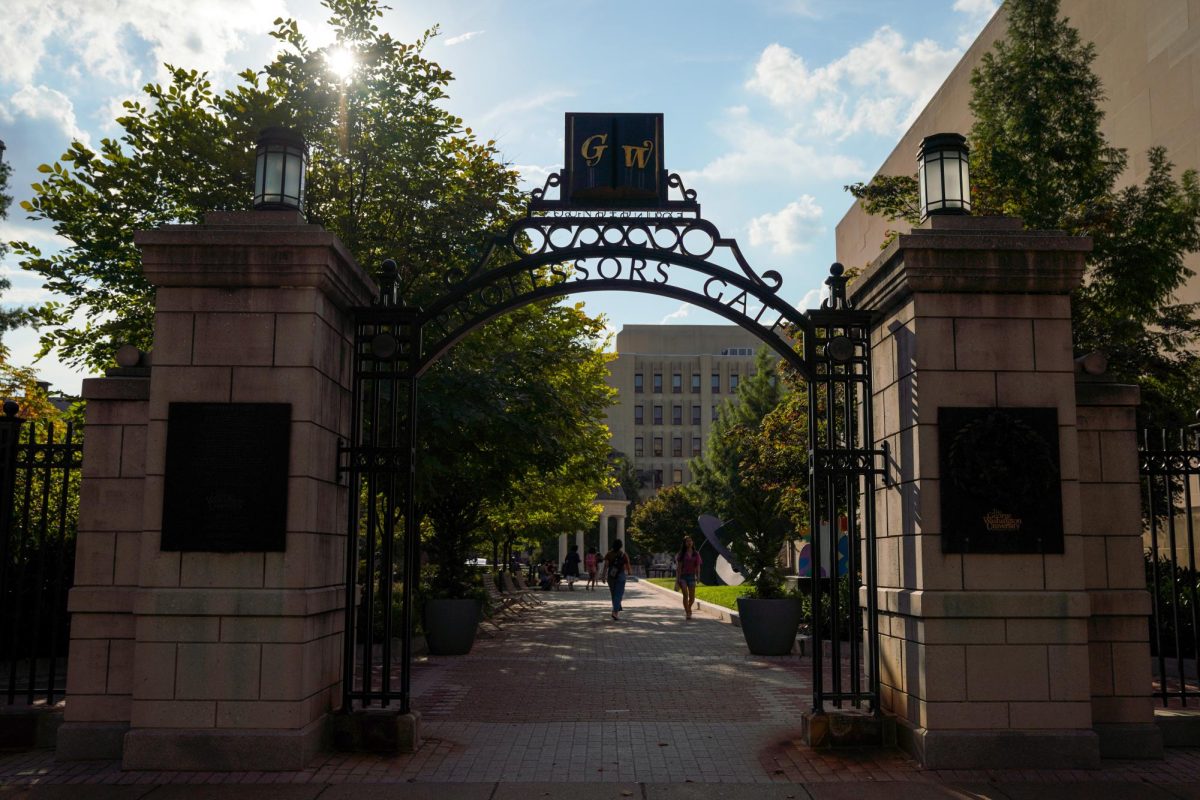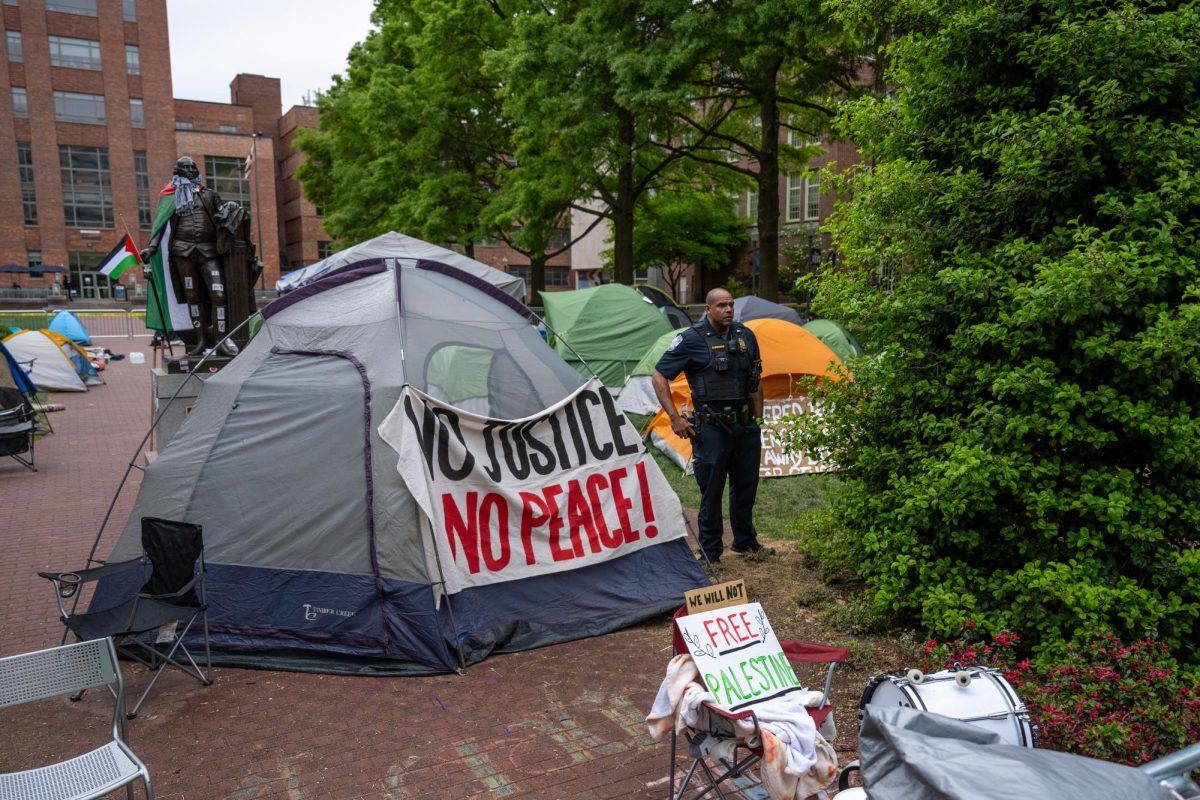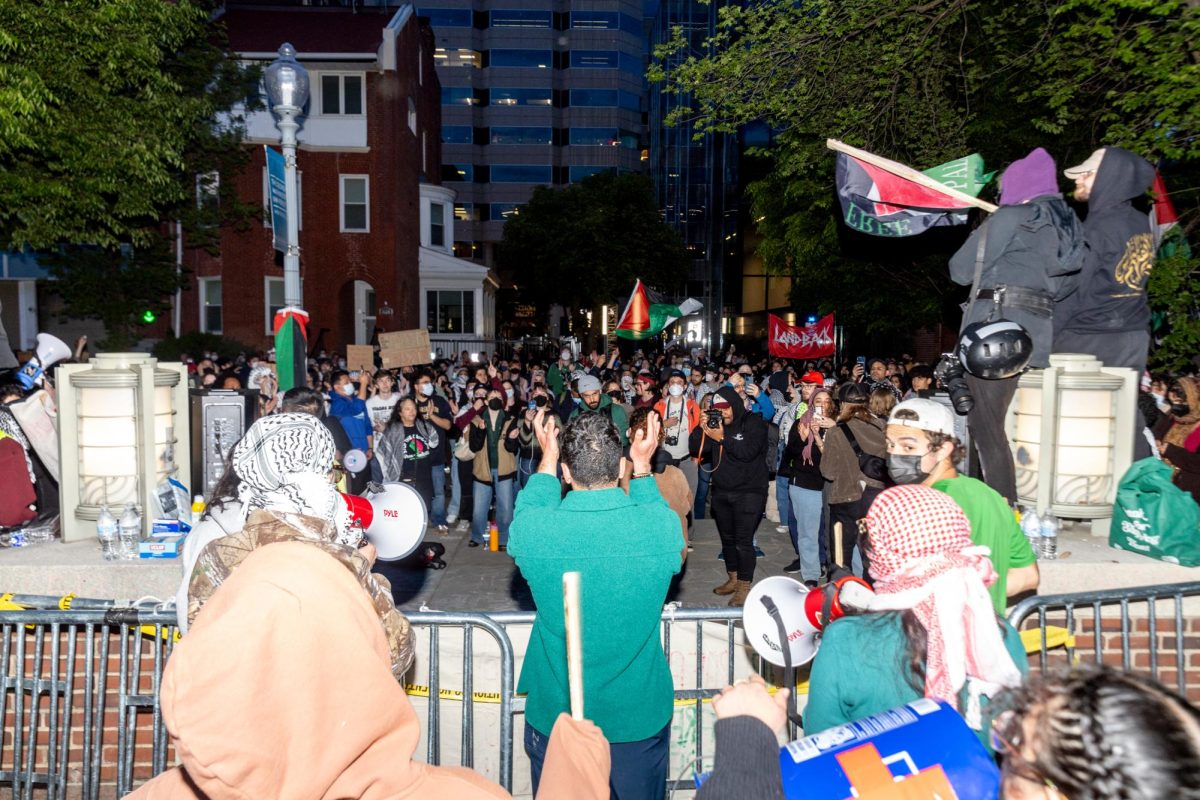Muslim and Palestinian students have reported several instances of Islamophobia on campus since the outbreak of the Israel-Hamas war, calling on University administrators to provide protection and support they say has been lacking.
Students said they know of at least four instances of unknown people ripping hijabs off of students on campus since the outbreak of the Israel-Hamas war. Muslim students said they reported incidents of being spat on and confronted by students on campus to the Office for Diversity, Equity and Community Engagement and said messaging from officials has exacerbated their fears as cases of Islamophobia intensify in Foggy Bottom and across the country.
“These are real-world problems,” said junior Azza Abbas, a Muslim student. “These are real-world people who are being hurt.”
University spokesperson Julia Metjian said the ODECE responds to bias reports within 24 to 48 hours of their submissions. She said while individuals may not respond to ODECE’s responses, the office “remains committed to supporting Muslim, Jewish and all GW students.”
“As the war in Israel and Gaza has impacted our community, the Office for Diversity, Equity and Community Engagement has received bias reports from students who identify as Muslim,” Metjian said in an email. “There have also been bias reports from Jewish community members.”
Metjian declined to state how many reports of Islamophobic incidents have been filed or how messaging from officials has affected student discourse and campus safety.
University President Ellen Granberg has released a series of statements on the Israel-Hamas war, and her Oct. 25 message said GW must “stand united against antisemitism and Islamophobia, as well as all forms of harassment, discrimination, and violence.”
But Muslim students said Granberg’s public statements, especially initial statements that condemned Hamas but did not include details of Israel’s history of violence in the Gaza Strip, weren’t enough to dispel feelings of animosity toward Muslim students.
Abbas, who is studying international affairs, said Granberg’s stature as GW’s president means her imbalanced comments may justify blatant Islamophobia.
“Our president’s putting out emails only when things involve the Jewish or Israeli community,” Abbas said. “But when it comes to us ranting to her all of a sudden, there’s nothing she has to say about us.”
She said officials’ messaging on the topic makes Muslim students feel like the University is more concerned about the school’s reputation than about student safety.
“Just acknowledge the idea that these are people,” Abbas said. “I feel like representatives of GW don’t understand how much their words really do play a role.”
Abbas said she and her friends were walking through campus last month — the same night members of Students for Justice in Palestine projected anti-Israel messages onto the facade of Gelman Library — when she witnessed students yelling at a Muslim student who was talking with police. She said she and her friends intervened, asking the students to lower their voices and calm down.
“We weren’t trying to argue because we know we’re outnumbered in the situation,” Abbas said. “Like let’s be for real, at the end of the day — because we’re the less-liked party — we knew we had to watch everything we said.”
She said the students accused the Muslim and Arab students of killing their family members in Israel and asked her what it feels like to be a “murderer.”
“We’re like, ‘You know, we’re not Palestinian. We are literally just Muslim,’” Abbas said.
Hamzah Moustafa, a first-year majoring in political science, said he was walking on campus at the intersection of G and 21st streets Oct. 10, when a white student glared at him and spat on his feet. He said he submitted a bias incident report Oct. 24 to document it, but he marked on the form that he did not want officials to contact him because he did not feel like they would address his concerns.
“I don’t really feel safe or accepted. It’s just especially as a first-year at GW, it just doesn’t feel safe,” Moustafa said. “I don’t feel accepted or welcomed or anything like that.”
Muslim people in the U.S. made a combined 774 requests for help and reports of bias incidents to the Council on American-Islamic Relations from Oct. 7 to Oct. 24, a spike from the 63 reports submitted in August.
He said many Muslim students feel like the campus has become an unsafe and hateful environment, especially for students wearing hijabs, a headscarf traditionally worn by Muslim women that may distinguish them as Muslim and make students wearing them targets for acts of hate.
“I feel like it reminds me of the post-9/11 hate crimes towards Muslims just going back to that dehumanization of Muslims or just calling all of us terrorists and stuff like that,” Moustafa said.
He said establishing a student-run safe space for Muslim, Arab, Palestinian and brown students on campus can help cultivate a more inclusive environment without administrative interference.
“Having equal treatment for all ethnic and religious minorities on campus and not just focusing on one group of people should be important,” Moustafa said.
Mina Ali, a senior majoring in public health and psychology, said before the Oct. 7 attacks, she wore sweatshirts with Palestinian insignias. She said now, she struggles with feeling safe because she wants to proudly, publicly claim her Palestinian identity but feels uncomfortable when she does so.
“People will just look at me differently,” Ali said.
She said her family has told her to avoid telling others she is Palestinian. She said she feels she needs to “preface” her support for the Palestinian people, which she believes is unfair.
“It comes to the point where I don’t feel it’s fair for me as a student in this community to have to hide my identity and for fear of being ostracized for my views that are not radical but are being made to seem radical here,” Ali said.
A Muslim student speaking on the condition of anonymity for fear of retaliation said fears over Islamophobia have made Muslim students scared to attend public events, post online and be hesitant to publicly display their Muslim identities.
“Just the fact that people are so scared to give their names because of the fear of hatred speaks so much about how the school is treating Muslims and minorities right now,” she said.
She said Muslim students are continuing to support one another and staying strong in their religious identity by checking in on each other. She said at events hosted by Muslim student organizations, students ensure all attendees can speak, and the presidents and board members of Muslim student organizations arrange private spaces to foster the community of Muslim students.
“We’re also staying strong in our belief and our religion, and we’re building ourselves up through our religion and staying in power at the same time,” she said. “We’re not going to let the things happening right now and let the other side’s voice tear us down.”
If you’d like to share instances of bias on campus, please email [email protected].





